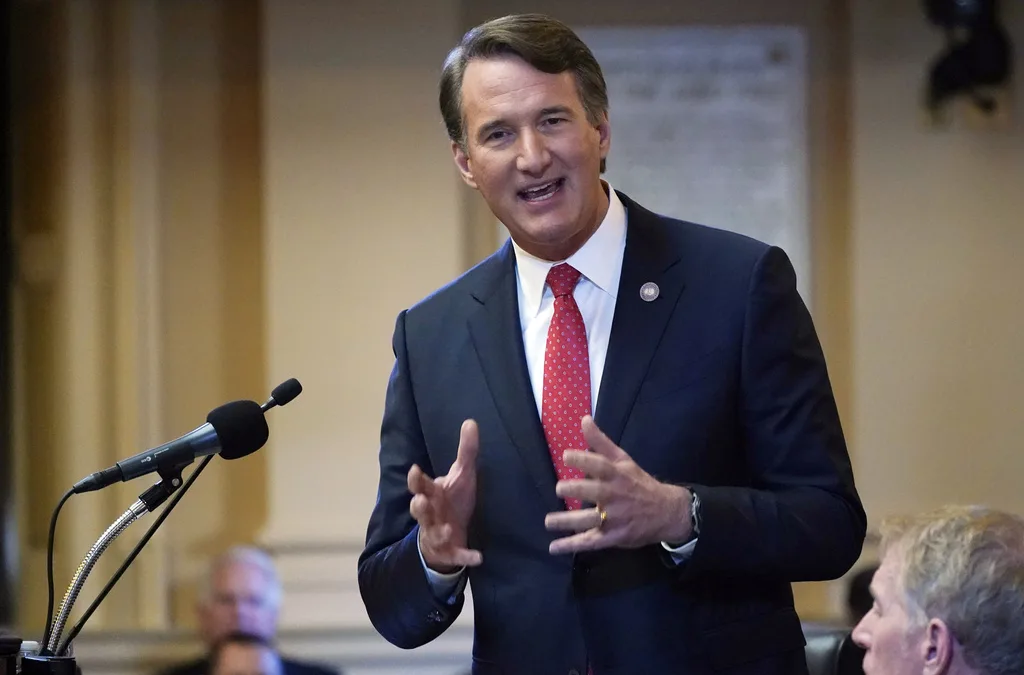
Proposals would rework how history is told in Virginia, with changes for students and teachers alike. The recommendations now go to the General Assembly and Department of Education for discussion.
RICHMOND-One of Crystal DeLong’s students raised a question last spring. She wondered if the Liberty High School teacher knew about the 1921 Tulsa Race Massacre. When DeLong said she didn’t know what that was, the student had more questions for her teacher.
“She wanted to know why we weren’t taught about things like that and why so much of African American history was left out of education,” DeLong said. “None of our students should feel like they are not represented or present in our study of history.”
DeLong spoke Monday as part of Virginia’s African-American History Education Commission. The group presented a year’s worth of work to the public and Gov. Ralph Northam, outlining specific recommendations to change how Virginia districts teach Black history. It’s not just a case of presenting history in an accurate way, group members said. In light of events over the past year, they argue these changes are necessary for the commonwealth to move forward.
“Recent events over the past year in the commonwealth and in the nation show how critical it is to have an accurate understanding of our history,” DeLong said. “Many of the arguments over Confederate monuments stem from a lack of understanding of why they were built. Knowledge is key.”
The commission was set up on Aug. 24, 2019 through Gov. Northam’s executive order, with the goal of improving how Black history is taught in Virginia schools. Group members were ordered to examine the state’s history standards and professional development practices, then make recommendations. School board members, university professors, pastors, historians and teachers from across the commonwealth made up the group.
Commission Asks General Assembly For Help
The problem, said Charlottesville City Schools Superintendent Dr. Rosa Atkins, is that right now, portions of Black history don’t make it into the textbooks.
“Virginia’s Standards of Learning must be inclusive of African American contributions, culture and accomplishments,” Atkins said. “[We must] allow [students] to draw connections from the past to its relevance in our contemporary communities and provide the knowledge that is necessary to close knowledge gaps for all age students and ethnicities.”
By providing them with more information about Black history, Atkins said students will have a better understanding of how the commonwealth was shaped. The first step in doing that involves several recommendations for the Virginia General Assembly. These will be discussed in the Assembly’s long session, beginning in January.
First, they asked for every Virginia educator to be required to take Cultural Competency Professional Development by 2022. This means learning how to understand, communicate with and interact with people from diverse backgrounds. The group asked state officials to provide both funding and personnel resources to set up this training, so it doesn’t fall on local districts.
Beyond that, the group recommended that all teachers get certified in African American History in order to keep or get a license. For those teachers with an endorsement in History or Social Science, they would also have to show evidence of course study in African American History. Finally, the group asked that lawmakers require students to get a credit in African American History before being allowed to graduate.
“Black history is Virginia history,” Dr. Atkins said. “Ultimately, the commission’s recommendations will help all Virginia students.”
She hoped the changes would help combat systemic racism in the district, helping some students develop greater empathy for their Black classmates.
More Black History Recommendations Laid Out
Dr. Derrick Aldridge talked to a number of teachers over the last year about these changes. The Director for UVa’s Center for Race and Public Education in the South found one constant in those conversations: teachers did not feel prepared. In some cases, they had outdated textbooks and resources. Others didn’t know where to go online to find the resources needed. That’s why the group went beyond the legislative recommendations and asked Virginia’s Department of Education to consider some changes as well.
The group asked VDOE to create a database of resources for teachers, providing content in multiple modes. Also, they asked for a statewide evaluation, looking at all resources and textbooks to determine which ones need to be retired. The Board of Education was asked to develop a model anti-racism educator policy, broadening the teaching pipeline to include a variety of diverse teachers. VDOE was also asked to get all school divisions to review their strategic plans. The goal was to make sure they included “culturally responsive teaching and culturally responsive practices.”
You can click here for the full 80-page report.
Setting Up A Timeline
It might be several years before these changes get approved. As mentioned earlier, the legislative recommendations will go before the General Assembly in January. The remaining material will be put before the Virginia Department of Education and the Board of Education. Content is revised every seven years in the commonwealth. The last revisions done to the Social Studies standards happened in 2015, which means the next round won’t take place until 2022. That gives the groups just under two years before a final document needs to be ready to vote on.
Politics

Opinion: The problem with Youngkin’s Charter-Lab schools push in 2024
The Problem Governor Glenn Youngkin introduced 233 amendments to the bipartisan budget so it was hard to know how to assess his budget–for example,...

What to know about Trump’s legal issues
Over the past year, former president Donald Trump has become the center of not one, not two, not three, but four criminal investigations, at both...
Local News

Virginia verses: Celebrating 5 poetic icons for National Poetry Month
There’s no shortage of great writers when it comes to our commonwealth. From the haunting verses of Edgar Allan Poe, who found solace in Richmond's...

Join the fun: Recapping Family Literacy Night’s storybook adventures
When’s the last time you read a book aloud with a loved one? If it’s difficult to answer that question, then maybe it’s time to dust off that TBR...




